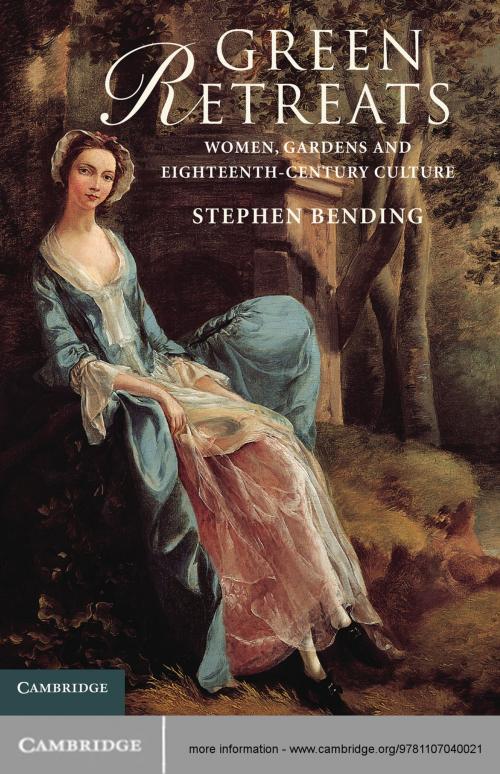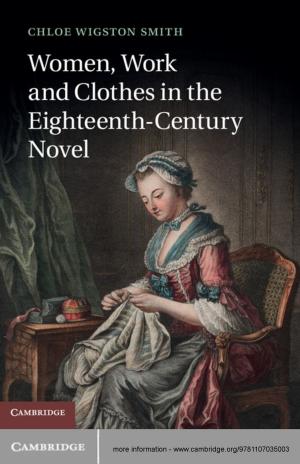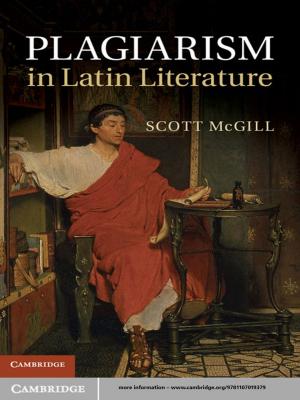Green Retreats
Women, Gardens and Eighteenth-Century Culture
Fiction & Literature, Literary Theory & Criticism, British, Nonfiction, Social & Cultural Studies, Social Science| Author: | Stephen Bending | ISBN: | 9781107425163 |
| Publisher: | Cambridge University Press | Publication: | June 6, 2013 |
| Imprint: | Cambridge University Press | Language: | English |
| Author: | Stephen Bending |
| ISBN: | 9781107425163 |
| Publisher: | Cambridge University Press |
| Publication: | June 6, 2013 |
| Imprint: | Cambridge University Press |
| Language: | English |
Green Retreats presents a lively and beautifully illustrated account of eighteenth-century women in their gardens, in the context of the larger history of their retirement from the world – whether willed or enforced – and of their engagement with the literature of gardening. Beginning with a survey of cultural representations of the woman in the garden, Stephen Bending goes on to tell the stories, through their letters, diaries and journals, of some extraordinary eighteenth-century women including Elizabeth Montagu and the Bluestocking circle, the gardening neighbours Lady Caroline Holland and Lady Mary Coke, and Henrietta Knight, Lady Luxborough, renowned for her scandalous withdrawal from the social world. The emphasis on how gardens were used, as well as designed, allows the reader to rethink the place of women in the eighteenth century, and understand what was at stake for those who stepped beyond the flower garden and created their own landscapes.
Green Retreats presents a lively and beautifully illustrated account of eighteenth-century women in their gardens, in the context of the larger history of their retirement from the world – whether willed or enforced – and of their engagement with the literature of gardening. Beginning with a survey of cultural representations of the woman in the garden, Stephen Bending goes on to tell the stories, through their letters, diaries and journals, of some extraordinary eighteenth-century women including Elizabeth Montagu and the Bluestocking circle, the gardening neighbours Lady Caroline Holland and Lady Mary Coke, and Henrietta Knight, Lady Luxborough, renowned for her scandalous withdrawal from the social world. The emphasis on how gardens were used, as well as designed, allows the reader to rethink the place of women in the eighteenth century, and understand what was at stake for those who stepped beyond the flower garden and created their own landscapes.















